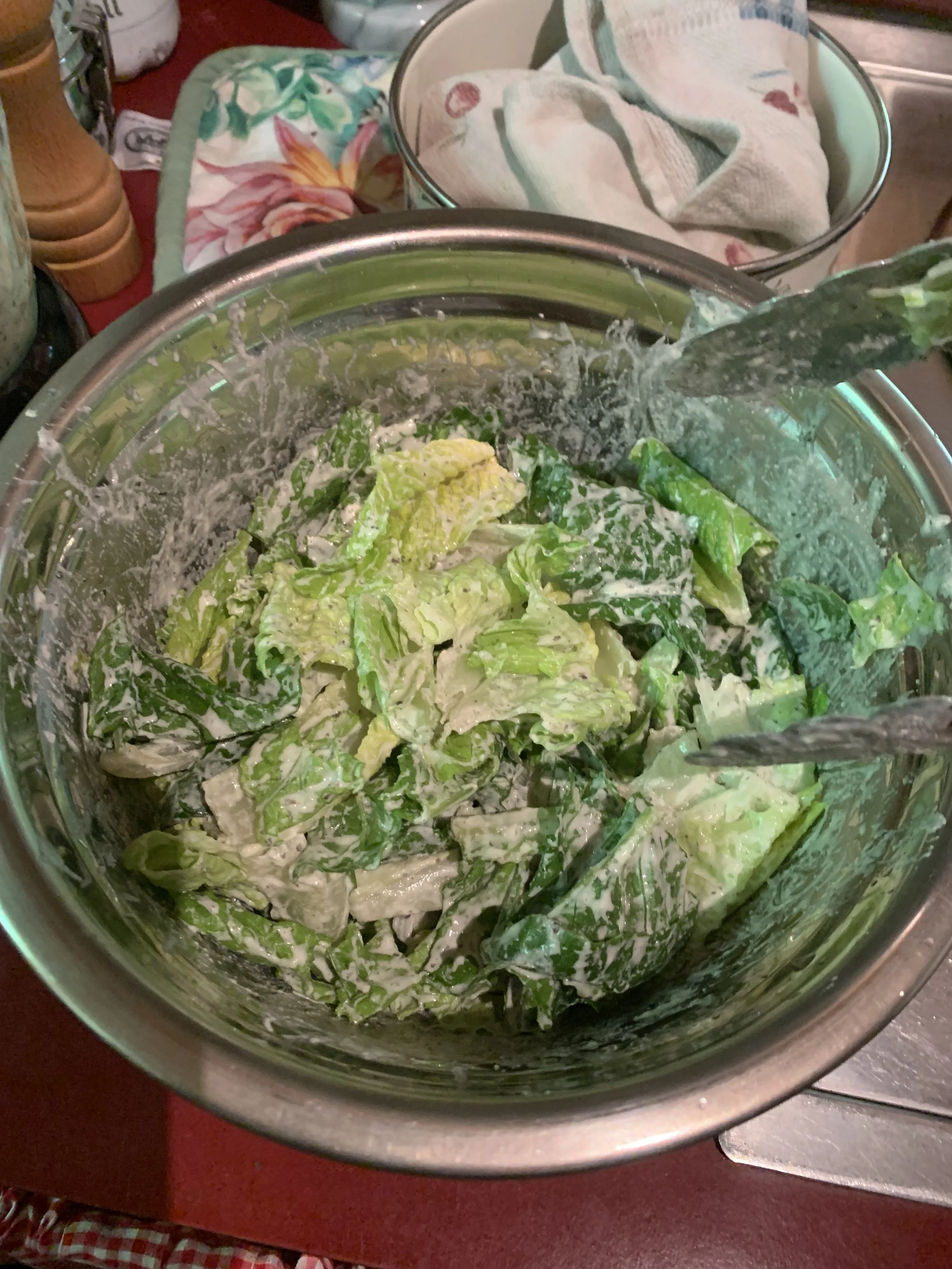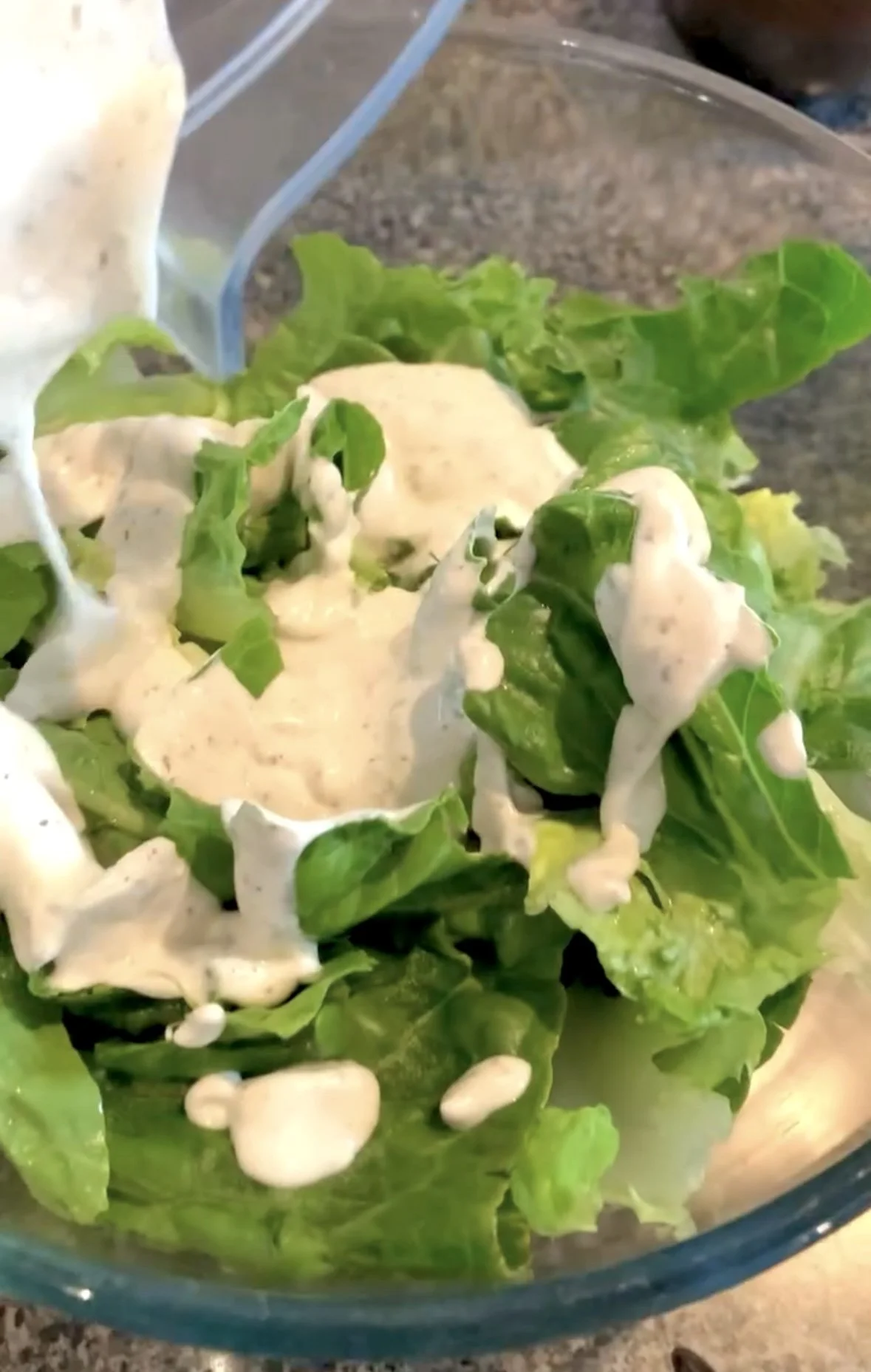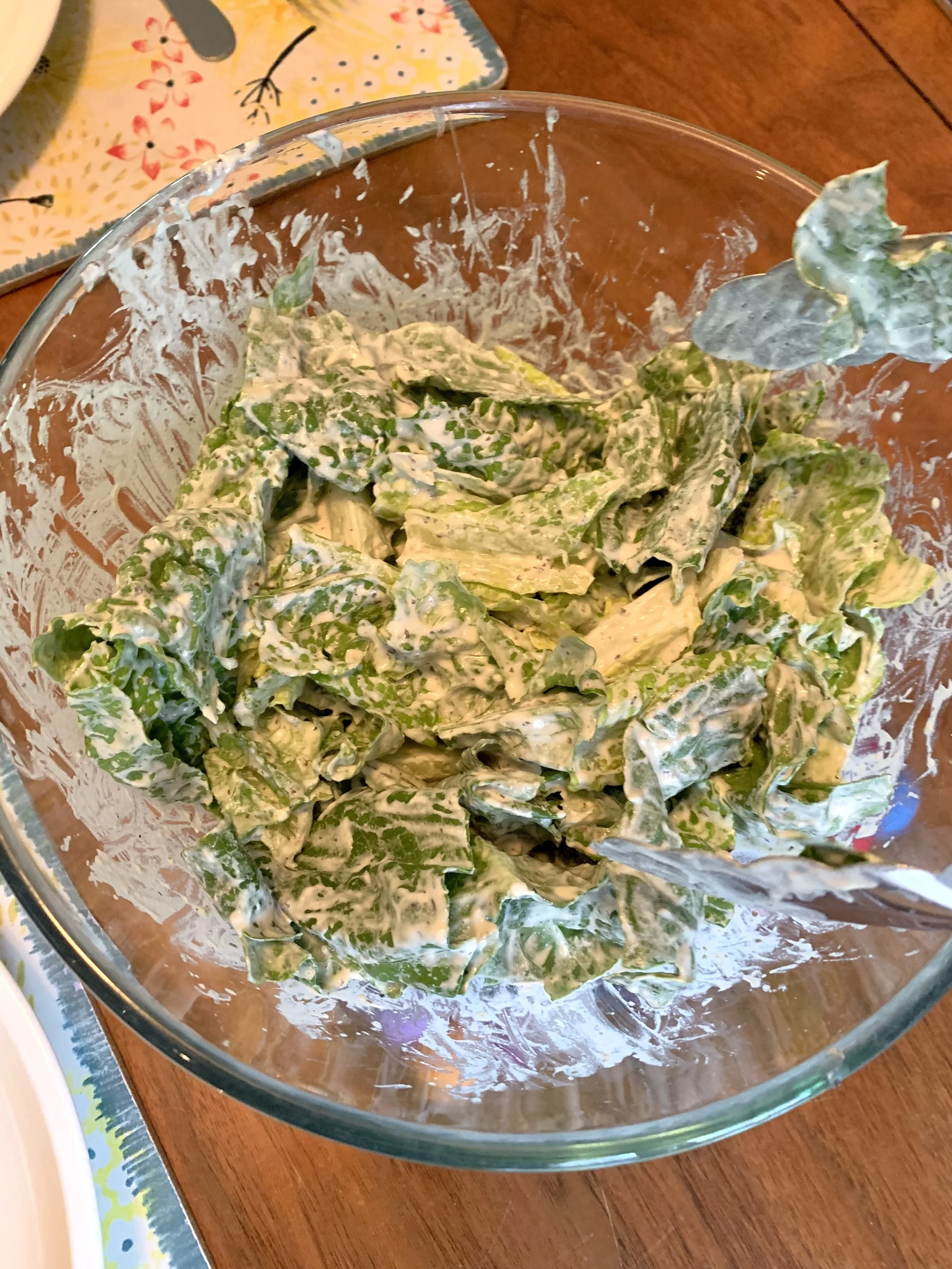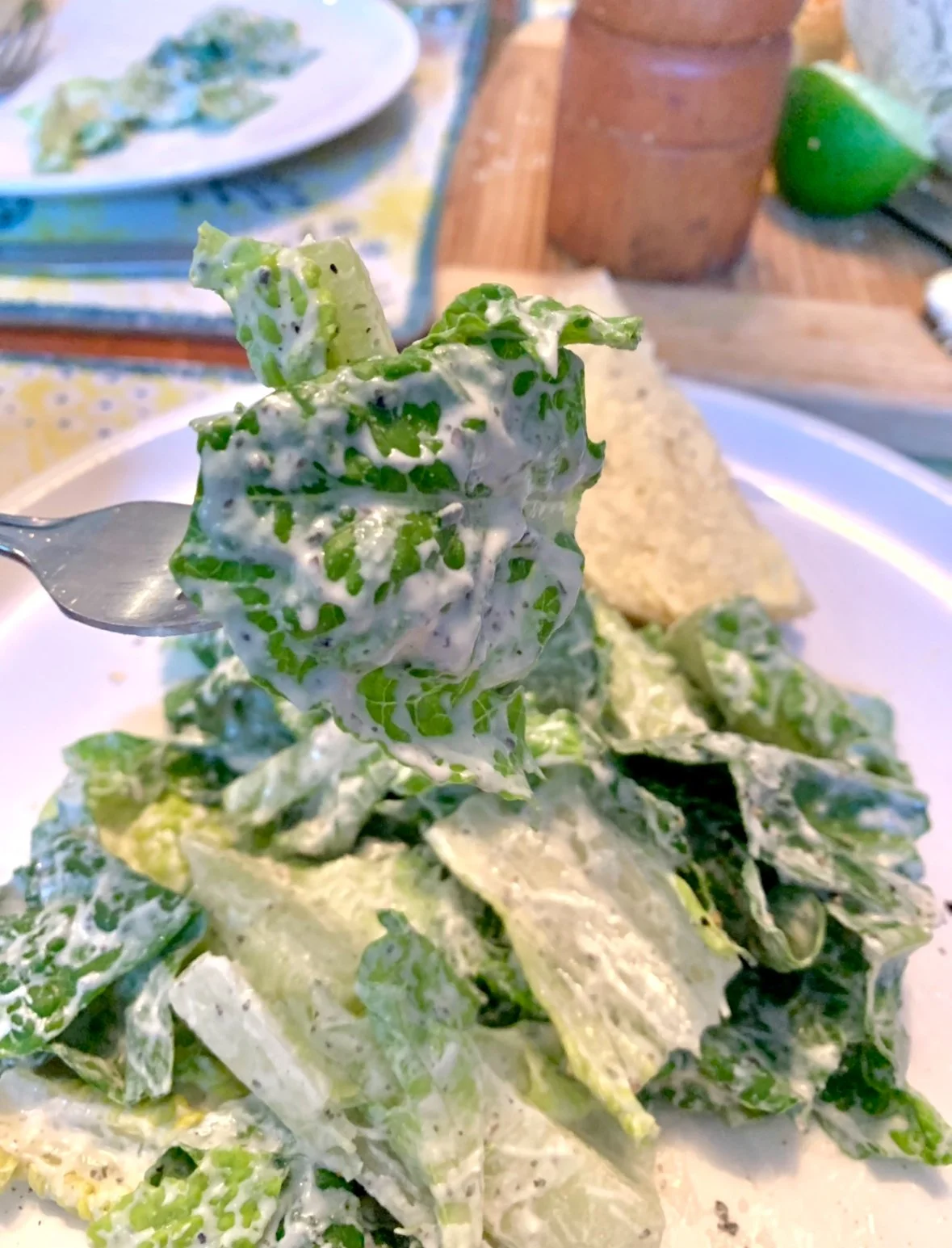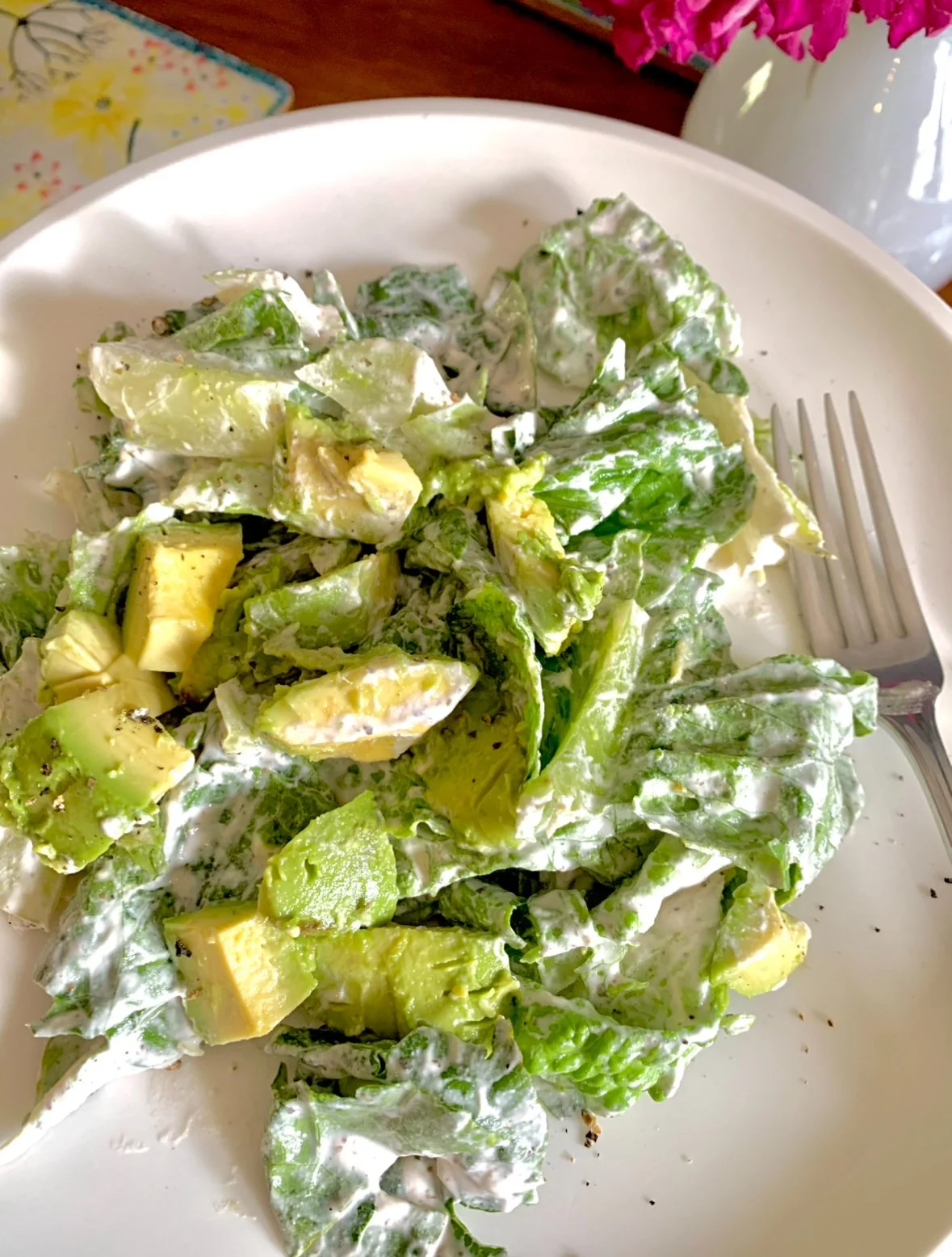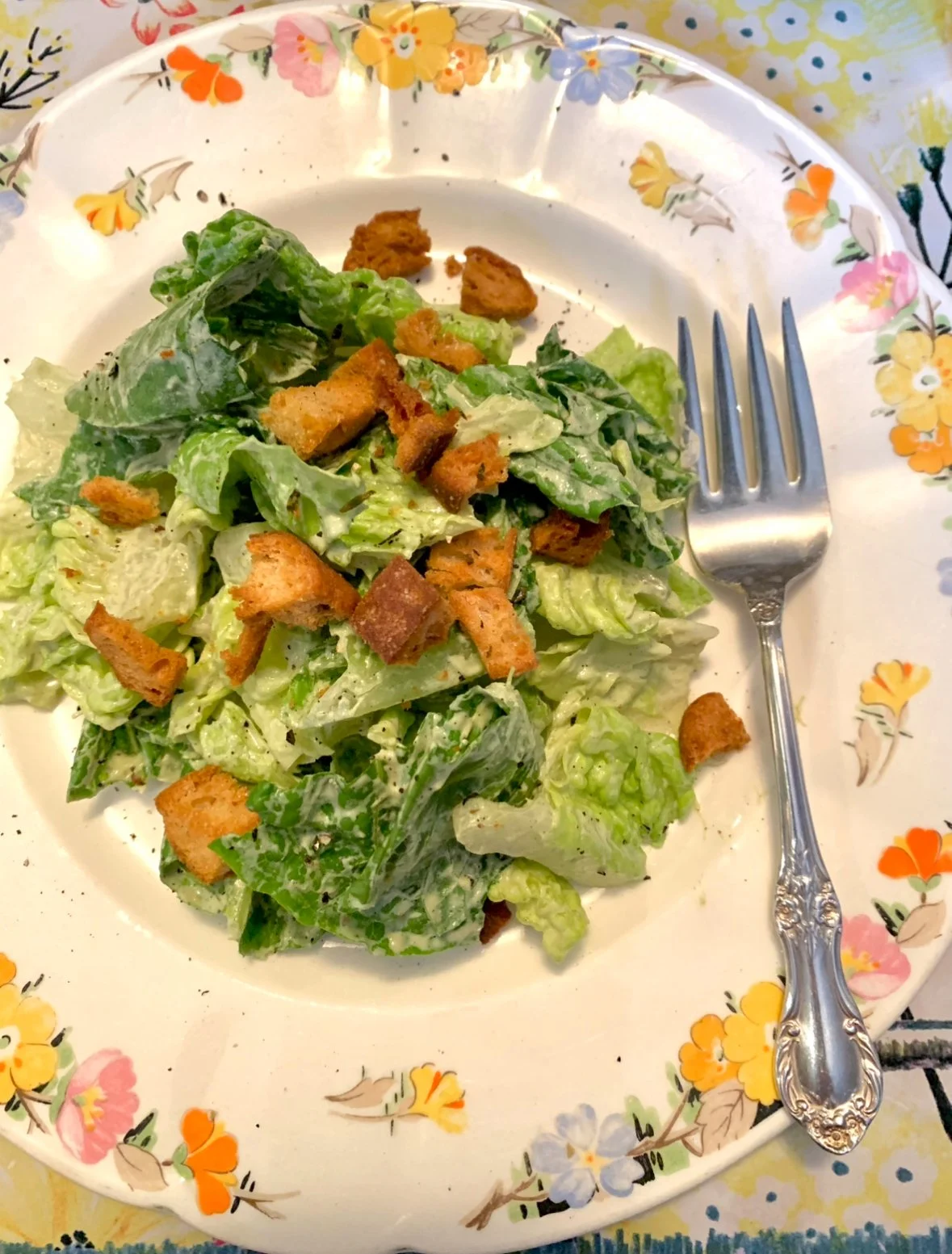Easy Vegan Caesar Salad
Hi I’m Evangeline! Welcome to my blog. I am mom and lover of all things health and wellness. By profession- a Registered Massage Therapist and Yoga & Ayurveda consultant. I started this blog back in the early days of Covid19 as a way to stay in touch with my clients, and it’s grown into a space to share what I love most. Here you’ll find health tips and nourishing recipes I make for my family, sprinkled with Ayurveda and Yoga wisdom. My hope is that these posts inspire you to care for yourself in small, joyful ways and feel a little more balanced in everyday life.
This quick and creamy vegan Caesar salad is perfect for warm summer days—light, refreshing, with a subtle sweetness from the cashews, yet deeply satisfying. My son really loves this dressing! Inspired by Ayurvedic principles, the dressing blends raw cashews for creaminess, fresh lime juice for bit of tang, seaweed for a hint of anchovy-like flavour— all gentle, digestion-friendly ingredients, with a little bit of heat from the black pepper and fenugreek leaves to balance it all out. It’s a soothing, balanced alternative to heavier dressings, ready in minutes, without weighing you down.
Easy Vegan Caesar Salad
Yield: 2-4 Servings
Prep Time: 5 minutes
Total Time: 10 minutes
INGREDIENTS
1 head romaine lettuce
¾ cup raw cashews, soaked in warm water for 10 minutes
3 Tablespoons lime or lemon juice
3 Tablespoons dried seaweed, cut into little pieces (optional)
¼ tsp dried fenugreek leaves
⅛ tsp fresh ground pepper
½ cup spring water
Salt to taste
1 tsp apple cider vinegar (optional- for a more tangy flavour)
INSTRUCTIONS
Rinse and prepare the romaine lettuce. You can leave the leaves whole, tear them, or chop them into bite-sized pieces.
Drain the soaked cashews and place them in a blender with lime juice, seaweed, soma salt, pepper, fenugreek, and spring water.
Blend for about a minute, or until creamy and smooth.
Drizzle half the dressing over the romaine lettuce. Serve it plated or casually tossed in a large bowl. Refrigerate remainder dressing for up to 5 days.Add your favourite toppings, like avocado, toasted nuts & seeds or the traditional croutons!

